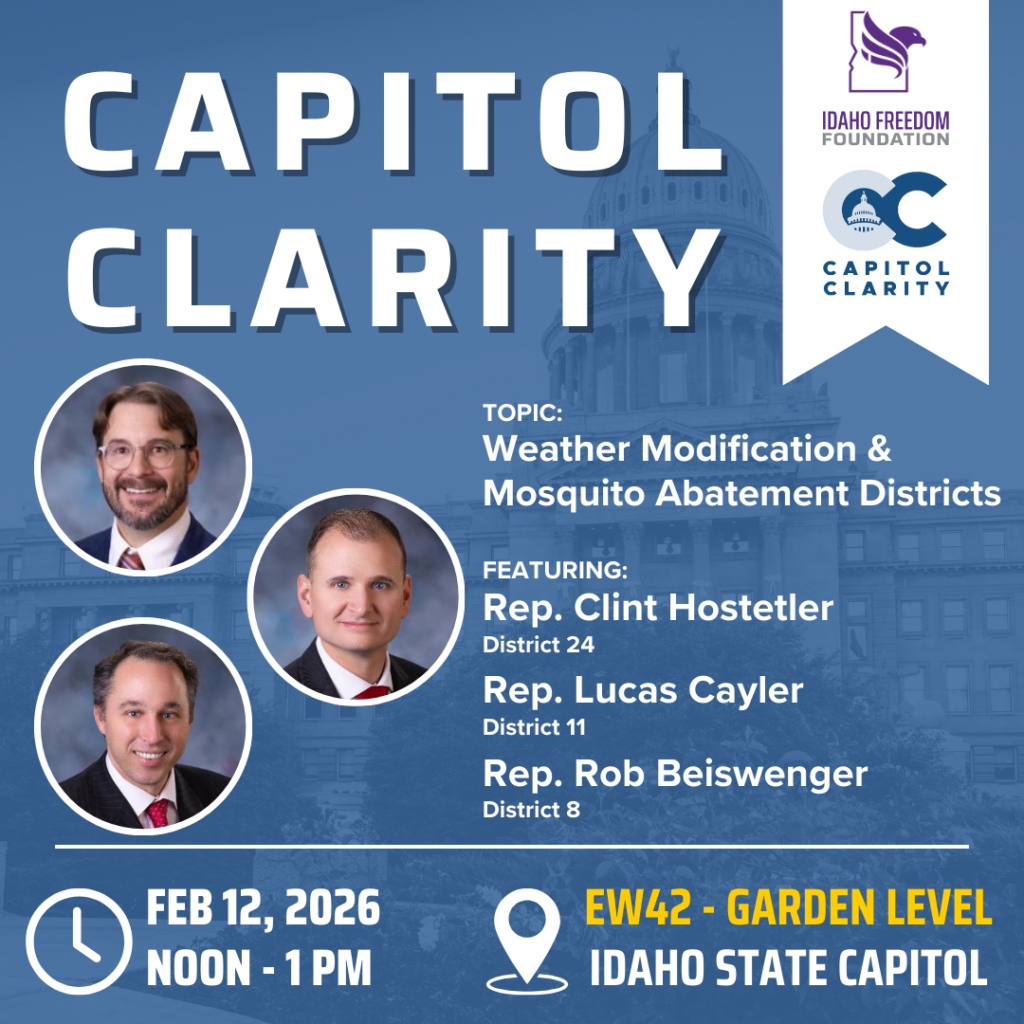


Bill Description: House Bill 24 would create the "Idaho launch grant program" to provide substantial taxpayer-funded subsidies to Idaho high school graduates for their college or workforce training.
Rating: -6
NOTE: House Bill 24 is similar to House Bill 19, introduced earlier in the 2023 Legislative Session.
Does it create, expand, or enlarge any agency, board, program, function, or activity of government? Conversely, does it eliminate or curtail the size or scope of government?
House Bill 24 would create a new grant program under Title 72 called the "Idaho launch grant program," which would provide grants of $8,500 per high school graduate. Participants would redeem the grant at the workforce training provider, career technical program, community college, or college of their choice.
(-1)
House Bill 24 would wind down the Opportunity Scholarship program and the Postsecondary Credit Scholarship to reroute their funding to the new Idaho launch grant program. While sunsetting these programs would be positive if done to reduce spending and return government to its proper role, the way it is being done here accomplishes neither of these purposes. Worse, the new grant program would do more and ultimately spend more than the two programs it replaces.
(0)
Does it transfer a function of the private sector to the government? Examples include government ownership or control of any providers of goods or services such as the Land Board’s purchase of a self-storage facility, mandatory emissions testing, or pre-kindergarten. Conversely, does it eliminate a function of government or return a function of government to the private sector?
Workforce training is not the proper role of government nor is it the responsibility of Idaho taxpayers. Businesses and private industry should train their own workforces, not outsource the responsibility and cost. House Bill 24 creates a large government program that serves to make the funding of workforce training a government responsibility.
(-1)
Does it increase government redistribution of wealth? Examples include the use of tax policy or other incentives to reward specific interest groups, businesses, politicians, or government employees with special favors or perks; transfer payments; and hiring additional government employees. Conversely, does it decrease government redistribution of wealth?
House Bill 24 provides grants of $8,500 per high school graduate. When government uses tax dollars to subsidize training or education, it is an involuntary redistribution of wealth.
(-1)
Does it increase government spending (for objectionable purposes) or debt? Conversely, does it decrease government spending or debt?
House Bill 24 creates a major redistributive government program to provide large subsidies to high school graduates in Idaho.
The bill’s fiscal note suggests that more than $100 million in first-year funding for this program will come partially from what would most likely have been appropriated to the Opportunity Scholarship program and the Postsecondary Credit Scholarship and primarily from the $80 million that was newly-allocated to the in-demand careers fund by House Bill 1 in last year’s special session.
(-1)
Does it violate the principle of equal protection under the law? Examples include laws which discriminate or differentiate based on age, gender, or religion or which apply laws, regulations, rules, or penalties differently based on such characteristics. Conversely, does it restore or protect the principle of equal protection under the law?
House Bill 24 says, "If eligible student applications exceed available funding in a fiscal year, grant awards shall be prioritized first based on the pursuit of in-demand careers. If additional funds remain, prioritization shall then be based on financial need."
These statutorily designated priorities show that the program will not be neutral in terms of its recipients. Those pursuing certain careers will receive priority. In this way, government picks winners and losers, predicting (or more realistically, guessing) what careers will have the greatest demand in the future.
(-1)
The second part of this provision proposes means testing to determine who receives this grant. This is both discriminatory and redistributive.
(-1)



